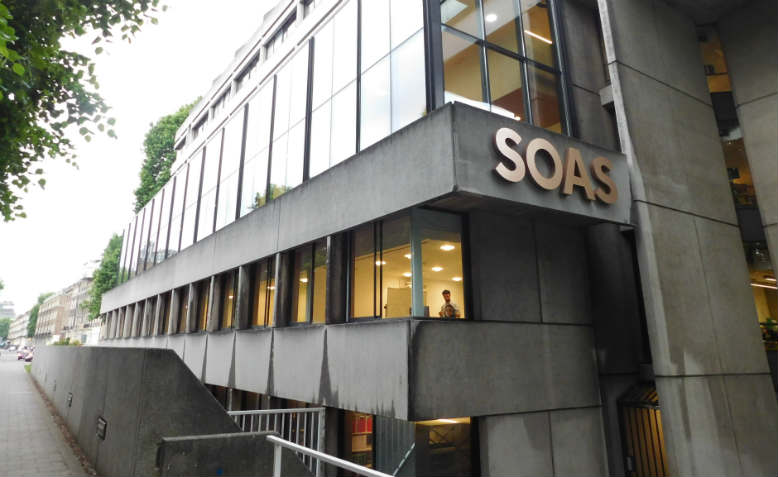 SOAS. Photo: Wikimedia Commons
SOAS. Photo: Wikimedia Commons
Claiming financial distress, SOAS has effectively sacked all its precarious academics in one fell swoop, reports Elaine Graham-Leigh
Management at SOAS has proposed to implement major cuts to fractional budgets, in an unprecedented attack on casualised academic staff across the School. It has also rescinded all research leave for permanent staff with immediate effect. The cuts mean that the workload of casualised staff will be pushed onto permanent staff.
This astonishing move is made necessary, management claim, by SOAS’ dire financial position. The college has been running with an operating loss of several million pounds for a number of years and the Director, Baroness Amos, warned the college’s trustees that the cash reserves would be exhausted by the end of the 2020-2021 academic year.
SOAS is far from the only university in financial trouble. In 2017-2018, nearly 25% of universities were running a deficit, some at more than 10% of their annual income. At the same time, they are increasingly reliant on casual staff who they can exploit to keep their costs down. A UCU report out yesterday found that more than half of academic staff are now on some form of insecure contract.
This is the predictable result of government withdrawal of block grant funding of universities, making them rely instead on fee income. This means that, just like any other business, they rely on their customers (formerly known as students) for their income. If the customers don’t come in large enough numbers, then they go bust and the remaining students just have to go elsewhere.
University managements have largely played the government’s game, plugging the gaps in their funding by selling off their assets, sometimes to private education companies, and now, turning on their staff. What is needed now is resistance from the higher education sector to the government’s privatisation by stealth of our universities. Do the Tories really want to start their new majority government with some of our most prestigious universities going under? Management should be calling their bluff, not doing their work for them.
At SOAS, there can be only one possible course of action: all-out strike and occupation of the whole campus until the fractional budget is restored. The entire sector must also swing into solidarity actions until SOAS’ management gives way. The SOAS staff are fighting for everyone in higher education and for the principle of higher education as a public service. That they win is essential for all of us.
Note: an earlier version of this article incorrectly stated that SOAS uses zero hours contracts.

